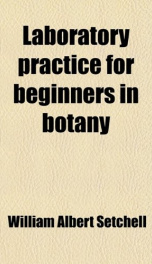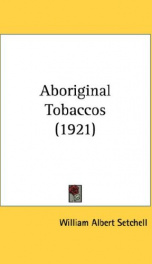laboratory practice for beginners in botany

Purchase of this book includes free trial access to www.million-books.com where you can read more than a million books for free. This is an OCR edition with typos. Excerpt from book: CHAPTER II SEEDLINGS I. Take some Peas which are just beginning to sprout, and notice : 1 . What organ protrudes itself first from the seed-coats ? 2. Make sketches showing this. £. II. Take some sprouting Beans, notice the same point and make sketches. i i"1 - - III. Take some sprouting grains of Corn, notice the same point and make sketches. xX IV. Take a pot of well-grown seedlings of the Pea and notice : 1. The position of the cotyledons relative to the surface of the soil. Dig up some of the seedlings carefully and notice : 2. That the cotyledons remain closely pressed together and within the seed-coats. 3. That the caulicle remains short, but that 4. A fairly long root (a primary root) with branches has grown out and downward from its tip. 5. That the plumule has grown out from between the coty ledons and upwards into the light. 6. This elongated plumule consists of several joints (nodes), each bearing a/Va/(or scale representing a leaf) and intervals between these (the internodes). 7. Make a sketch showing these different parts and label each carefully. V. Take a pot of well-grown Bean Seedlings and notice : 1. The position of the cotyledons relative to the surface of the soil. Examine some seedlings which have been carefully removed from the soil and notice that: 2. The cotyledons have cast off (as a general rule) the seed- coats and have separated from one another. In the older seedlings they have become greenish ; and in the oldest seedlings of all they have dried up and fallen off. 3. The caulicle has elongated to many times its original length and has become stouter and green in color. 4. A stout main root (a primary root) with branches has grown from the tip of the...
Info about the book
Author:
Series:
Unknown
ISBN:
1468485466
Rating:
5/5 (3)Your rating:
0/5
Languge:
English
Users who have this book
Users who want this book
What readers are saying
What do you think? Write your own comment on this book!
write a commentif you like laboratory practice for beginners in botany try:
Other books by this author
Do you want to read a book that interests you? It’s EASY!
Create an account and send a request for reading to other users on the Webpage of the book!


